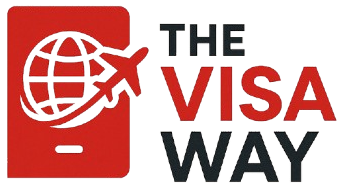Have a question
EB-4 Visa (Employment-Based Fourth Preference – Special Immigrants)
The EB-4 Visa is an employment-based immigrant visa for special immigrants, allowing eligible individuals and their families to obtain permanent residency (Green Card) in the United States. This category includes religious workers, certain employees of U.S. government agencies abroad, and other specialized groups.
What is an EB-4 Visa?
The EB-4 Visa falls under the Employment-Based Fourth Preference (EB-4) category. It is designed for individuals who serve unique roles that support U.S. interests, including:
Religious workers (ministers or workers in religious vocations).
Certain international organization employees.
Employees of U.S. government abroad.
Special immigrants under other designated groups, such as Afghan or Iraqi nationals who worked with the U.S. government.
Beneficiaries of the EB-4 Visa receive lawful permanent residency, allowing them to live, work, and study in the United States permanently.
Why Choose an EB-4 Visa?
Grants permanent residency to individuals serving in specialized roles.
Allows spouse and unmarried children under 21 to be included as derivative beneficiaries.
Provides a pathway to U.S. citizenship.
Recognizes contributions to religious, government, and special programs.
Ideal for individuals dedicated to serving U.S. interests abroad or in religious communities.
Eligibility Requirements
Eligibility depends on the specific EB-4 subcategory:
Religious Workers
Must be a member of a recognized religious denomination for at least 2 years.
Must be entering the U.S. to work full-time in a religious vocation or occupation.
Must have a job offer from a U.S. religious organization.
Special Immigrants (Other Categories)
Certain employees of U.S. government abroad.
Afghan or Iraqi nationals who worked with the U.S. government.
Other groups designated under U.S. immigration law.
Additional Requirements:
Must meet health, security, and admissibility standards.
Must provide evidence of the qualifying employment or affiliation.
EB-4 Visa Process
Petition Filing (Form I-360): Submit Form I-360 to USCIS for classification as a special immigrant.
USCIS Approval: Petition is reviewed and approved.
Priority Date & Visa Availability: EB-4 visas are subject to annual limits; applicants must wait for their priority date to become current.
Adjustment of Status (I-485) or Consular Processing: Apply for Green Card if priority date is current.
Biometrics & Interview: Attend USCIS biometrics and possible interview.
Green Card Issuance: Receive permanent residency in the U.S.
Documents Required
Valid passport.
Form I-360 petition and supporting evidence.
Proof of employment, religious affiliation, or special immigrant eligibility.
Letters from religious organizations or U.S. government employer (if applicable).
Birth and marriage certificates for dependents.
Medical examination report.
Additional supporting documents as requested by USCIS.
Timeline & Processing Time
I-360 Petition Processing: 6–12 months
Adjustment of Status or Consular Processing: 6–12 months
Overall Processing: Typically 12–24 months, depending on backlog and category.
EB-4 vs. Other Employment-Based Visas
EB-1: Extraordinary ability, outstanding researchers, multinational executives.
EB-2: Professionals with advanced degrees or exceptional ability.
EB-3: Skilled workers, professionals, and other workers.
EB-4: Special immigrants (religious workers, government employees, and designated groups).
EB-5: Investors creating jobs through significant investment in the U.S.
How We Help
We assist EB-4 applicants throughout the process:
Evaluating eligibility for religious or special immigrant categories.
Preparing and filing Form I-360 petitions with complete supporting documentation.
Guidance for Adjustment of Status or Consular Processing.
Assistance with derivative family members’ applications.
Step-by-step support until permanent residency is granted.
Why Choose Us for EB-4 Visa Assistance?
Expertise in handling religious and special immigrant petitions.
Accurate and thorough documentation to maximize approval chances.
Guidance on navigating priority dates and visa bulletin updates.
Personalized support for applicants and their families.
Trusted partner in achieving U.S. permanent residency for special immigrants.




